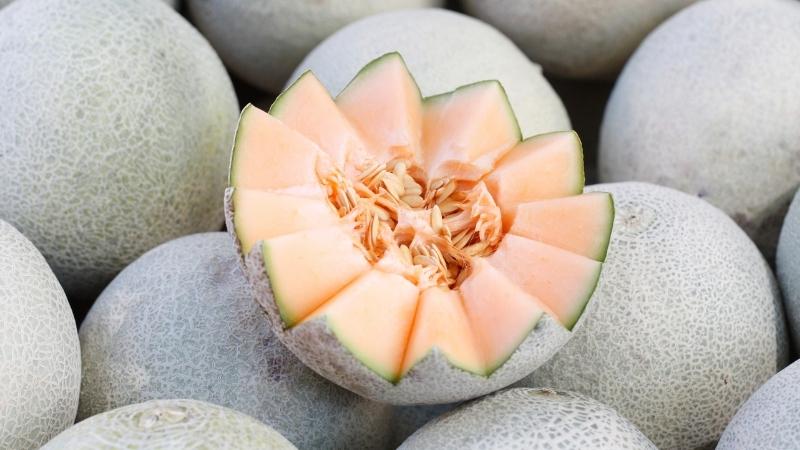Honeydew melons are a popular and delightful fruit known for their cool, sweet, and refreshing flavor. To ensure you select the best honeydew melon, we have compiled some helpful tips for choosing the most delicious ones in the article below.
Exploring the Health Advantages of Honeydew Melons
Researchers Analyzing Nutritional Value of Honeydew Melons
Honeydew melons are a variety of gourd fruit, characterized by their spherical or elongated shape and green skin with white veins. As they ripen, the skin may develop a yellow hue. Within, honeydew melons feature yellow-orange or reddish-yellow flesh that is renowned for its refreshing crispness and delightful sweetness.
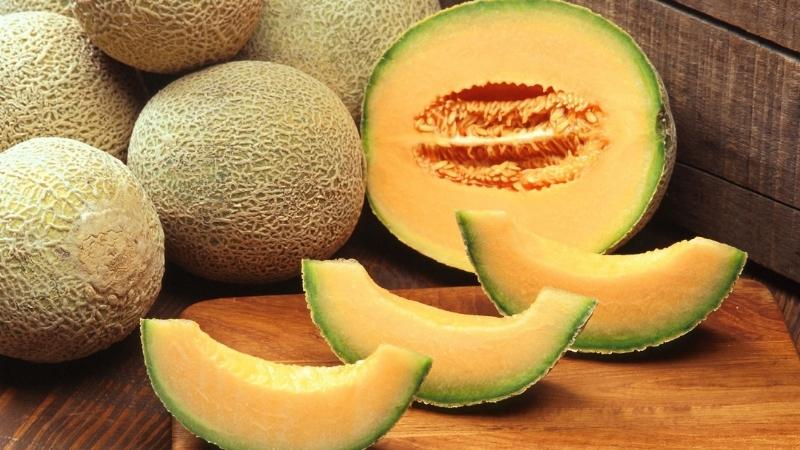
Nutritional value of honeydew melons
Honeydew melons are a highly nutritious fruit, boasting a composition that includes water content of 88%, potassium at 300mg per 100g, 1g of fiber per 100g, approximately 48 calories, as well as various essential vitamins.
Research evidence demonstrates that honeydew melons are a rich source of essential vitamins and minerals. An analysis of 100g of honeydew melons has revealed the presence of various nutrients, including 21 µg of vitamin A, 0.734 mg of thiamin, 2020 µg of beta-carotene, 12g of carbohydrates, 0.21mg of iron, 9mg of calcium, 36.7mg of vitamin C, 169 µg of potassium, and a caloric value of 34 kcal. These findings highlight the nutritional value and potential health benefits associated with honeydew melons.
Exploring the Health Advantages of Honeydew Melons
Beneficial for bone health and assists in alleviating joint inflammation.
Honeydew melons are a nutritious fruit that contains important substances like magnesium, folate, and vitamin K. These nutrients play a crucial role in promoting bone health and strength.
Research has shown that honeydew melons contain phytochemicals with potent anti-inflammatory properties, making them a valuable addition to one’s diet. Incorporating a sufficient amount of honeydew melons into one’s daily nutrition can effectively help prevent bone and joint inflammation.
Our product provides a balanced mix of electrolytes and water.
Honeydew melons are rich in water, with an approximate water content of 88%. Additionally, these melons contain essential electrolytes like potassium, magnesium, and calcium, which effectively restore hydration in the body. Furthermore, the high fiber content present in honeydew melons plays a vital role in promoting and sustaining a healthy digestive system, aiding in the prevention of constipation.
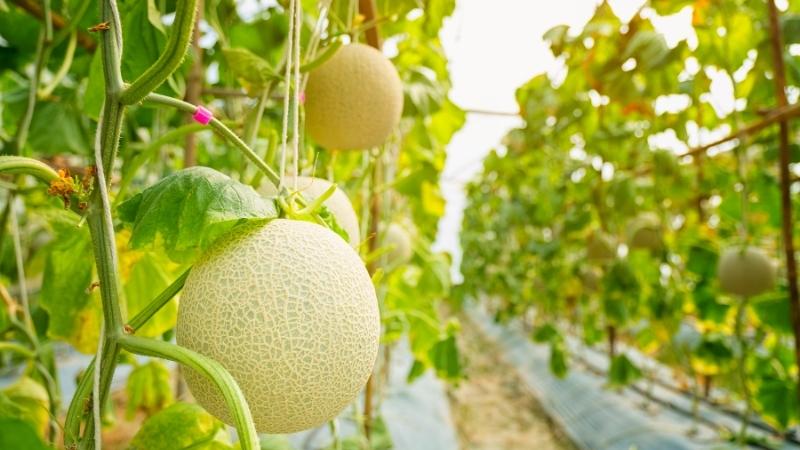
Provides electrolytes and water
Benefits of this product:
- Supports healthy skin.
Consuming honeydew melons is beneficial for the skin due to their high vitamin C content and essential vitamins and minerals. These melons help moisturize and firm the skin, while also stimulating collagen production for a healthier and more radiant complexion.
Honeydew melons are known for their abundance of antioxidants that can effectively safeguard the skin against the damaging impact of UV rays, environmental factors, and aging.
Assists in lowering blood pressure
Consuming a diverse assortment of fruits can effectively regulate blood pressure and safeguard cardiovascular health due to their abundant quantities of fiber, potassium, sodium, and vitamin C. Ample potassium and electrolyte intake assists in maintaining blood pressure stability, reducing the chances of stroke occurrence, and preventing coronary artery disease.
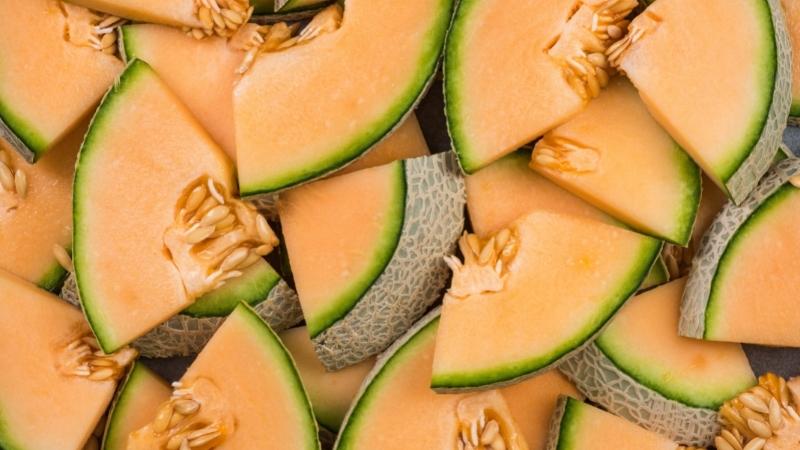
Helps reduce blood pressure
Enhances the immune system
Honeydew melons are a nutritious fruit abundant in vitamin C, known for its immune-boosting properties and disease-fighting benefits. Regular consumption of this melon provides a substantial dose of vitamin C, which helps to fortify the immune system and mitigate the risk of various illnesses. Moreover, a sufficient intake of vitamin C is believed to aid in preventing and treating respiratory conditions, such as the common cold and pneumonia.
One of the benefits of consuming carrots is that it improves eye health. Carrots are rich in beta-carotene, which is converted into vitamin A in the body. Vitamin A is essential for good vision and helps protect the cells in the eyes from damage. Regular consumption of carrots can help reduce the risk of certain eye conditions, such as macular degeneration and cataracts. So, don’t forget to include carrots in your diet for better eye health!
Based on research conducted by the Linus Pauling Institute at Oregon State University, the presence of zeaxanthin and lutein in honeydew melons has been scientifically proven to possess advantageous effects on eye health. With their ability to maintain and support the well-being of the eyes, these compounds play a crucial role in preventing the development of debilitating conditions like cataracts and age-related macular degeneration.
How to Pick the Perfect Sweet Honeydew Melon
View the Form of a Star
High-quality honeydew melons exhibit a firm and spherical structure, lacking any empty areas. When purchasing melons, it is advisable to avoid those with tapered ends, as these may possess less crisp flesh and perhaps a bland flavor.
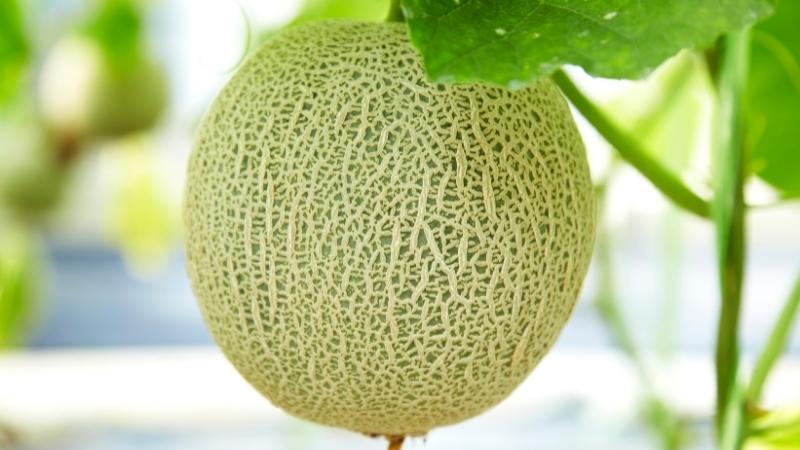
Observe the shape
Investigating the Link Between Ultraviolet Radiation and Skin Cancer
To select a quality honeydew melon, carefully inspect its skin’s appearance. Look for raised veins that feel rough and possess a vibrant green color. Additionally, when gently pressing the melon’s skin, it should exhibit elasticity and not yield too easily.
It is recommended to avoid melons with black, cracked, discolored, or less veined skin, as these are indications that the melon is not yet ripe.
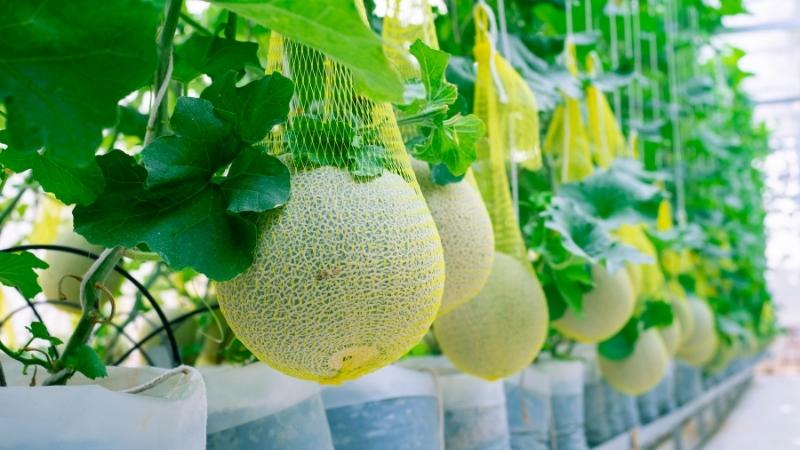
Examine the skin
Examining the Benefits of Stem Cell Therapy
How to Choose a Ripe Honeydew Melon
When selecting a honeydew melon, it is important to look for certain characteristics to ensure it is ripe and flavorful.
Firstly, check the stem of the melon. A ripe honeydew melon will have a stem that is slightly sunken and has serrated edges.
Avoid melons with green stems as these are signs that the fruit is not yet ripe. These melons may have less crisp and flavorful flesh.
So, remember to look for a honeydew melon with a sunken stem and avoid melons with green stems to ensure you choose a ripe and sweet fruit.
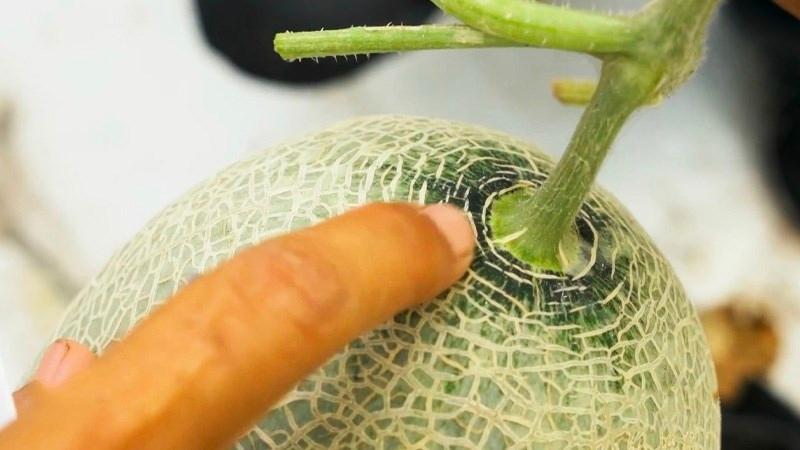
Inspect the stem
Verify Your Lifting Power!
To ensure the longevity of honeydew melon, it is wise to select a specimen that is both weighty and firm when handled. Conversely, if immediate consumption is desired, choose a melon with an appropriate weight.
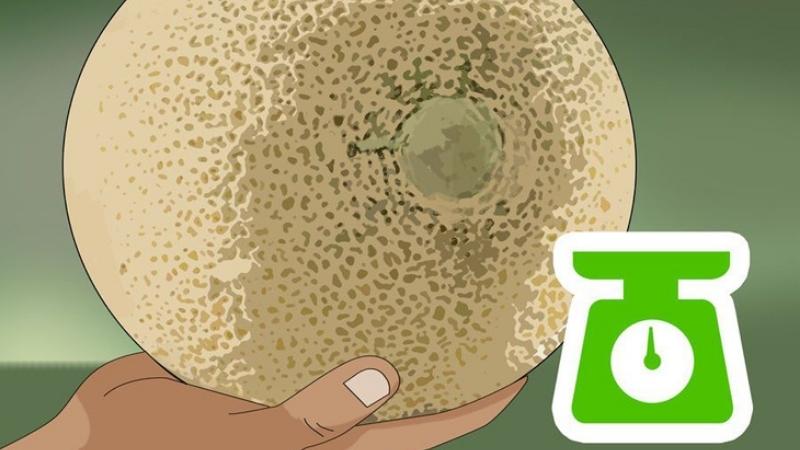
Check the weight
Inhale the Delicious Smell of Pumpkin Spice!
Honeydew melons can be identified as ripe by their characteristic aroma. To determine if a melon is ripe, bring it close to your nose and inhale. A ripe honeydew melon will emit a mild and subtle fragrance. It is advisable not to purchase melons with a peculiar or absent scent, as these are indications that they are not yet ripe.

Smell the aroma
How to Effectively Eat and Store Honeydew Melons
5 Ways to Enjoy Honeydew Melons
While honeydew melons are widely enjoyed for their delicious flavor and numerous health benefits, it’s important to note that they may not be suitable for everyone. Below are some important considerations:
- In order to achieve weight loss goals, it is advisable for individuals to restrict their intake of honeydew melons during evening hours. This is due to their elevated sugar levels, which have the potential to contribute to weight gain when consumed before sleep.
- Women who have recently given birth often require additional energy. On the other hand, individuals who are underweight and looking to gain weight should be cautious about consuming excessive amounts of honeydew melon. This is due to its high fiber and water content, which can create a prolonged feeling of fullness and diminish appetite.
- Individuals with oral allergy syndrome (OAS) may encounter symptoms like mouth swelling, itching, breathlessness, and swallowing difficulties when consuming honeydew melons. It is advised for them to avoid the consumption of this particular fruit.
- Individuals who suffer from chronic bowel inflammation, kidney disease, and liver disease are advised to avoid consuming honeydew melons
due to the high potassium levels contained within this fruit, which can potentially exacerbate their existing medical conditions.
- The consumption of honeydew melons is advised to be limited by individuals with fever or diabetes due to its relatively high sugar content, as it can have a cooling effect on the body.
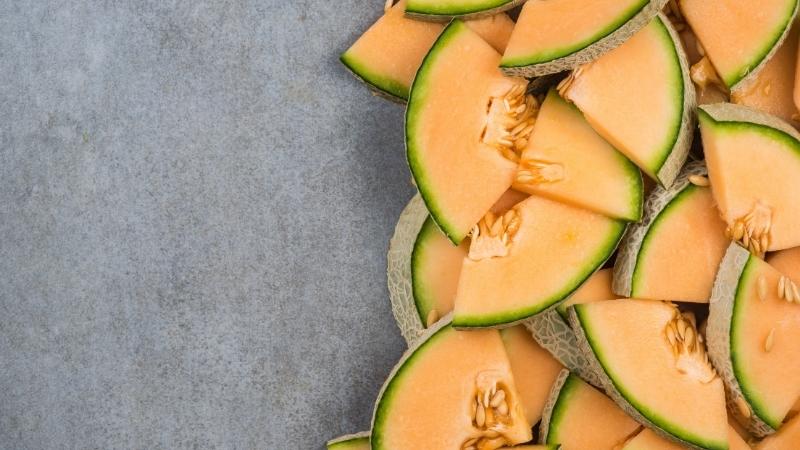
Tips for eating honeydew melons
Tips for Properly Storing Honeydew Melons
When it comes to storing honeydew melons, it is important to follow a few guidelines to maintain their freshness and flavor. Here are some helpful tips:
- Choose ripe melons: Look for honeydew melons that are firm but yield slightly when you press on the stem end. Avoid melons with soft spots or blemishes.
- Store at room temperature: If the honeydew melon is still unripe, leave it at room temperature for a few days until it reaches the desired ripeness. Once fully ripe, it can be refrigerated.
- Wrap and refrigerate: If you have a fully ripe honeydew melon, wrap it tightly in plastic wrap or place it in an airtight container before refrigerating. This will help preserve its freshness and prevent any odors from affecting its taste.
- Keep away from other fruits: Honeydew melons produce a natural gas called ethylene, which can speed up the ripening process of other fruits. To prevent this, store your melons separately from other fruits.
- Consume within a week: For best flavor and quality, it is recommended to consume honeydew melons within a week of refrigerating them. This will ensure that they maintain their juiciness and sweetness.
By following these simple tips, you can enjoy delicious and refreshing honeydew melons for longer periods of time.
To properly store ripe honeydew melons, it is advised to find a dry and cool location. Refrigeration immediately after purchase should be avoided.
To ensure optimal storage conditions, it is recommended to wrap the honeydew melon securely in plastic wrap or newspaper. Place it inside a designated fruit container within the refrigerator, at a temperature range of 0-15 degrees Celsius.
Tips for storing honeydew melons
4 Tasty Recipes Using Honeydew Melon
Honeydew Melon and Egg Ice Cream
Experience the ultimate pleasure of indulging in a delightful treat like honeydew melon ice cream during the scorching summer season. This delectable dessert boasts a rich and creamy texture, achieved through a perfect blend of eggs and milk. Embark on a sensory journey as you savor the unique essence of honeydew melons, leaving you enamored with every spoonful.
For more information:

Honeydew melon and egg ice cream
Honeydew Melon Bingsu
Honeydew melons are commonly used in bingsu, a delightful and invigorating dessert that should not be missed on hot summer days. The shaved ice, paired with the luscious flavor of condensed milk and the unique scent of honeydew melons, is a perfect remedy for staying cool.
For more information:
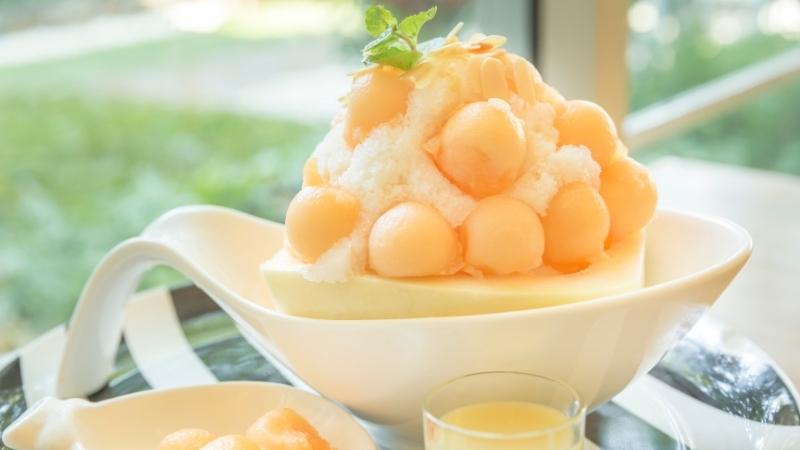
Honeydew melon bingsu
Honeydew Melon Smoothie
One delightful method to savor the delightful essence of honeydew melons is through the creation of a nourishing and satisfying smoothie. The combination of honeydew melon’s cooling and invigorating flavor, the creamy decadence of freshly sourced milk, the subtle tanginess of yogurt, and the exquisite aroma of honeydew melons combine harmoniously to produce a satisfying and healthful beverage experience.
For more information:
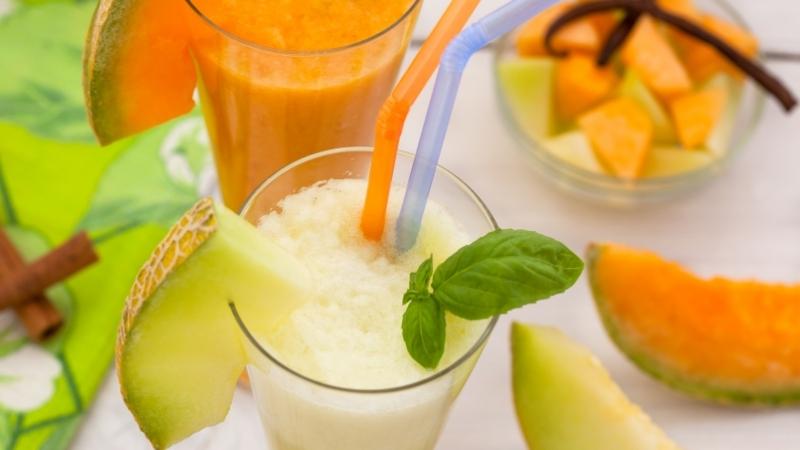
Honeydew melon smoothie
“Find Honeydew Melons at an Affordable Price at Our Supermarket!”
For more information: Fresh honeydew melons at our store
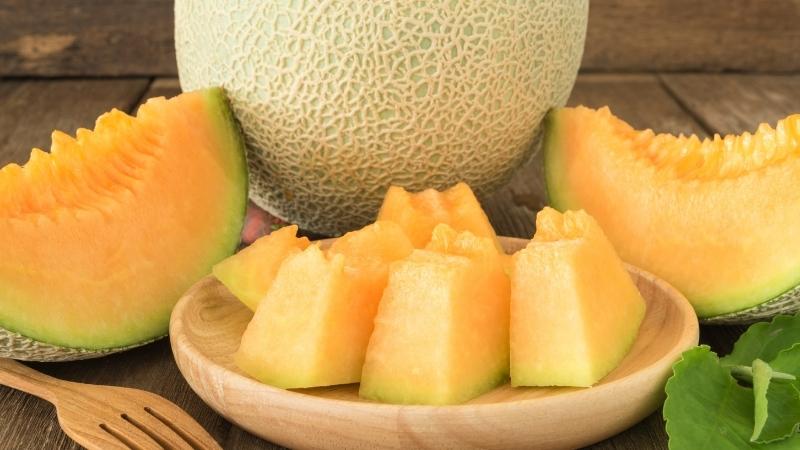
We are: The best supermarket for buying honeydew melons at a great price
Thank you for visiting our website. We are delighted to provide you with a guide on selecting the most flavorful honeydew melons. Kindly follow the instructions above to make the perfect choice. Should you require further information, do not hesitate to explore our other articles.


























